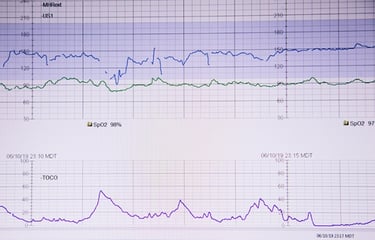Doctors, hospitals and other healthcare professionals collect huge volumes of data about your health. Using Big Data analytics can help stop diseases in their tracks, change public policy or alert your doctor when you’re having an asthma or heart attack.

Some healthcare professionals already use Big Data tools to analyze huge amounts of clinical data they collect. This enables them to gain key insights at a rapid pace for better patient care.
No other industry has as much potential to harness the power of Big Data as the Healthcare industry does.
Big data presents us with great possibilities. Its use already helps solve some of the world’s most complex problems. Better earthquake prediction and improved weather and election forecasts reveal the extent of what’s possible.
But the healthcare industry long ago established itself as a leader in collecting large amounts of data. No industry outside of healthcare collects such huge volumes of established and accessible data as what goes into patient databases.
Wearables, Connected Devices Collect Big Data on Patients
The possibilities keep expanding as the industry leads in technological innovation especially in the space of personalized medicine as well as personal health data management.
Wearables and their clinical cousins, connected medical devices, provide real-time data. This Apple Smartwatch collecting accurate heart rate data is just the tip of the iceberg. Another manufacturer makes a biosensor in a band worn over the forearm to record heart rate, temperature, breathing and any sudden movements such as panic jerks. Some asthma patients wear a connected medical device that provides real-time information. A nurse or doctor can track the patient’s improvement or get an alert if the patient suffers a serious asthma attack.
Healthcare Information Changes Public Policy
As you can see, Big Data proves its mettle for healthcare in many instances. On a larger scale, healthcare professionals take on problems that affect greater numbers of people at a time.
Research using Big Data has helped us to learn how to stop the tuberculosis bacterium from developing further antibiotic resistance.
In some developed countries, Big Data drastically changes how policymakers manage public health discourse and public health finance.
The list doesn’t end here though. A world of untapped potential awaits our exploration in Healthcare that calls for targeted investment. Additional investment into Big Data analytics will help us better manage epidemics, improve medical research and discovery of preventive methods of disease management.
Big Data Serves Key Role in Preventive Healthcare
As the world population grows exponentially, the demand for affordable yet quality healthcare is growing. Australian government spending on health grew by 6.8% in real terms in 2016–17 to $124 billion. That far exceeds the average growth rate for the previous 5 years of 2.6%. The massive increase in healthcare expenditures makes the role of preventive health even more important. This supports the argument to invest in big data as a need rather than a want.
A key piece of making preventive healthcare successful has been identified as smart wearables. These rely on machine-to-machine learning to make the best use of the data collected.
Gartner, the world leader in IT research, anticipates IoT hardware spending specifically on wearables and machine-to-machine learning will exceed $2.5 million every minute this year alone. By investing in Big Data analytics, the following impact can be seen in the health care ecosystem.
Deep Data Analytics Speeds Diagnosis, Treatment
Cost of care can be reduced by introducing competitive and legislative changes supported by deep data analytics while efficiently managing public resources. By using distributed computing, information processing tasks get completed within a very short time-window. This helps in processing tumor data 1,000x faster, which reduces diagnostic and treatment lead times from hours to seconds. This, in turn, helps doctors diagnose, structure a remedy and treat patients promptly.
Preventive Healthcare Reduces Costs, Increases Access
Healthcare’s biggest issue is affordability and access to the masses. For the population to thrive, healthcare must be accessible, affordable and available on-demand. Educating patients on preventive health care will improve health. That can reduce the demand and waste of constrained healthcare resources.
Big Data Improves Each Patient’s Care, Saves Lives
By increasing patient engagement and personalizing healthcare initiatives, organizations will improve the quality and efficiency of care. Understanding a patient individually will be important when designing tailored, effective and targeted healthcare programs. For instance, doctors now can apply big data to help them determine the proper diagnosis and treatment that would best combat pediatric cancer. Using a Big Data application which analyzes a patient’s genetic makeup help doctors identify personalized treatment options which in the case of pediatric cancer provides personalized medicine vital to treating disease.
By using Big Data, we can analyze huge amounts of clinical data collected from across the length and breadth of a healthcare ecosystem. Big Data applications can process it at a very rapid speed to gather key insights to aid patient care. With time, the healthcare industry will benefit from the usage of business intelligence along with real-time data which will allow healthcare professionals to make a more accurate diagnosis in an efficient and timely manner.
Big data is here to stay and is expected to grow in the medical field exponentially. It will continue to pose a big challenge to the status quo and will offer lucrative opportunities for effective health solutions that can help save millions of lives.